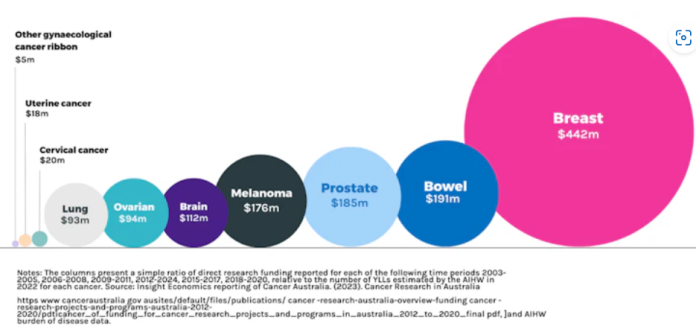From the Gynaecological Cancer Transformation Initiative
A new initiative aiming to revolutionise the diagnosis, treatment and care pathway for women with gynaecological cancers is soon to be launched to the Australian public, as we work to secure a significant funding commitment from the federal government.
Leading gynaecological cancer organisations, clinical and pre-clinical researchers, and women with lived experience, have joined forces to develop the Gynaecological Cancer Transformation Initiative (GCTI), an evidence based national program with the goal to deliver equitable access to world-class healthcare, improving quality of life and survival rates for all women with a gynaecological cancer.
Developing the GCTI report and program details has taken months of collaborative work. This initiative has been led by the Australia New Zealand Gynaecological Oncology Group (ANZGOG), with collaborative partners Ovarian Cancer Research Foundation and Ovarian Cancer Australia (OCA), alongside Omico, a genomic and molecular profiling not-for-profit company, and other collaborators.
The proposal has been shared with all political parties for funding consideration, receiving an encouraging reception, but there is still a long road ahead. The next step is an outreach and media campaign, which will launch in mid-April.
Why is this initiative needed?
Collectively, gynaecological cancers – including ovarian, uterine, cervical, vaginal, and vulvar cancers – have received less funding, fewer resources and have poorer outcomes compared to many other types of cancer.
The reasons for this are complex, ranging from biological factors to gender bias and inequity, as well as the diversity and relative rarity of the individual tumour types – although as a group gynaecological cancers are the fourth most common cause of cancer-related death for Australian women, and incidence is rising.
Australian women and their families need more options and more funding investment for coordinated, integrated gynaecological cancer research for rapid translation into new treatments.
Fifty-five per cent of gynaecological cancers are rare or less common with limited treatment options. While significant investment in cancer research has been made over the past 20 years, gynaecological cancers have collectively received the poorest funding in aggregate for research.
The Gynaecological Cancer Transformation Initiative brings three key and interdependent areas of focus:
1. The woman’s journey – equitable access to optimal personalised treatment and improved survival, with specialist supportive care.
2. The clinical team – delivering timely care that is driven by innovative application of technology, research and data.
3. The research community – a framework for coordinating and integrating gynaecological cancer research for rapid translation into new treatment solutions (bench to bedside).
The Gynaecological Cancer Transformation Initiative would enable:
- Expanding access to molecular profiling and precision medicine – personalising diagnosis and treatment and moving away from a one-size-fits-all approach.
- Enhancing clinical team capability across Australia including regional and remote areas – access to the latest research, knowledge, treatment and care options
- National gynaecological cancers data portal and virtual biobank – facilitating access to samples and information for research
- Transforming gynaecological cancer research – increased drug repurposing studies and innovative clinical trials with a focus on new medicines and approaches to treatment
- Improved access to specialist supportive care for more women
If funded, the Gynaecological Cancer Transformation Initiative would provide a unique opportunity to revolutionise the diagnosis, treatment and care pathway for women with a gynaecological cancer and significantly reduce the devastating impact of these cancers and save women’s lives.
Now is the time for this Transformation Initiative with government policy and funding for programs focused on translational researcher into rare and less common cancers, genomics and women’s health. This action and the GCTI has been made possible by generous support from private philanthropic funding to ANZGOG and the passionate voices of women calling for action.
What’s next:
Over the past few months, we have been meeting with Parliamentarians from all major parties, raising the profile of gynaecological cancers and advocating for investment in the GCTI ahead of the federal election. From mid-April, ANZGOG will spearhead a media campaign to raise public awareness of the issues – and the solution in the GCTI – to galvanise broad community support in the lead-up to the election. Advocacy will continue after the election, as we work with Government to achieve our goals.








